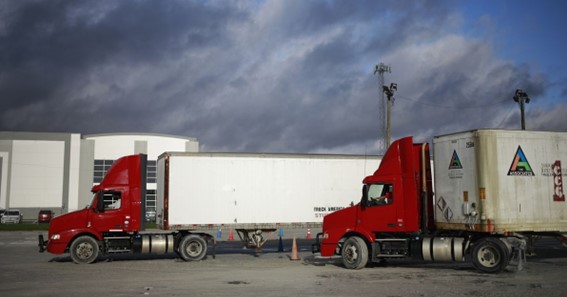“What is the safest time to make a U-turn for a truck driver?” is a question that is asked fairly regularly to Atlanta trucking accident attorneys, truck driver safety advocates, and other people. The guidelines for semi-truck U-turns are covered in full on this page, along with suggestions for how to approach them.
NO UNCONTROLLED U-TURNS ARE ALLOWED
A truck should never make a wild U-turn when making U-turns. All trucking businesses should implement and train their drivers under this basic safety regulation for truck drivers. For truck U-turns, “controlled” refers to the driver being accompanied by a spotter and confident that the move can be initiated and completed without incident.
What Makes Truck U-Turns Risky?
Truck U-turns are risky for several reasons. Time is the primary factor, plain and obvious. A large semi-truck simply takes too long to make a U-turn. Even waiting for 15 to 17 seconds for a truck to make a left turn is a considerable wait.
Even more, time would be required for a U-turn, and there is a higher chance that the motorist could become “stuck” at any given time. While the U-turn is being made, traffic signals may change, and more vehicles may enter the road.
Additional factors that make a U-turn risky for big commercial trucks include:
- Usually, the driver does not know whether they have enough time to complete the U-turn at the beginning of their turn. Unseen vehicles will approach the truck before the maneuver can be finished.
- There is often not enough width on major roadways to allow a truck to maneuver a U-turn, so a driver will often need to make multiple attempts and changes.
- Many drivers operate “alone,” thus nobody will be there to watch them make the U-turn.
Why Are Trucking Mishaps a Serious Problem?
There are several reasons why trucking accidents might result in severe, catastrophic injuries, including:
- Trucks can inflict considerably more significant damage than automobiles because of their larger size and heavier weight than smaller passenger vehicles.
- The blocking of a single route can be caused by many tractor-trailers (such as when the tractor-trailer makes a U-turn, jackknives, or wide turns in a situation).
- Especially in icy circumstances, truck accidents can cause highway delays that result in pile-ups and numerous vehicle collisions.
- Some vehicles may be transporting dangerous or toxic materials, rocks, or other items that could leak onto the road and present additional risks.







